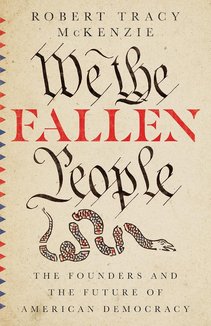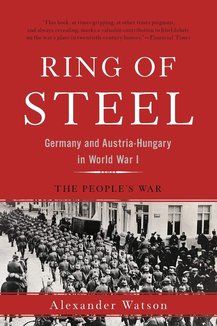Recommended Books

We the Fallen People: The Founders and the Future of American Democracy
Author:
Robert Tracy McKenzie
ISBN 13:
978-0830852963
Christianity Today Book Award The Gospel Coalition Book Awards Honorable Mention Foreword INDIES Book of the Year Award Finalist The success and survival of American democracy have never been guaranteed. Political polarization, presidential eccentricities, the trustworthiness of government, and the prejudices of the voting majority have waxed and waned ever since the time of the Founders, and there are no fail-safe solutions to secure the benefits of a democratic future. What we must do, argues the historian Robert Tracy McKenzie, is take an unflinching look at the very nature of democracy―its strengths and weaknesses, what it can promise, and where it overreaches. And this means we must take an unflinching look at ourselves. We the Fallen People presents a close look at the ideas of human nature to be found in the history of American democratic thought, from the nation's Founders through the Jacksonian Era and Alexis de Tocqueville. McKenzie, following C. S. Lewis, claims there are only two reasons to believe in majority rule: because we have confidence in human nature―or because we don't. The Founders subscribed to the biblical principle that humans are fallen and their virtue is always doubtful, and they wrote the US Constitution to frame a republic intended to handle our weaknesses. But by the presidency of Andrew Jackson, contrary ideas about humanity's inherent goodness were already taking deep root among Americans, bearing fruit in such perils as we now face for the future of democracy. Focusing on the careful reasoning of the Founders, the seismic shifts of the Jacksonian Era, and the often misunderstood but still piercing analysis of Tocqueville's Democracy in America , McKenzie guides us in a conversation with the past that can help us see the present―and ourselves―with new insight.

The Napoleonic Wars: A Global History
Author:
Alexander Mikaberidze
ISBN 13:
978-0199951062
Austerlitz, Wagram, Borodino, Trafalgar, Leipzig, Waterloo: these are the places most closely associated with the era of the Napoleonic Wars. But how did this period of nearly continuous conflict affect the world beyond Europe? The immensity of the fighting waged by France against England, Prussia, Austria, and Russia, and the immediate consequences of the tremors that spread throughout the world. In this ambitious and far-ranging work, Alexander Mikaberidze argues that the Napoleonic Wars can only be fully understood in an international perspective. France struggled for dominance not only on the plains of Europe but also in the Americas, West and South Africa, Ottoman Empire, Iran, India, Indonesia, the Philippines, Mediterranean Sea, and the Atlantic and Indian Oceans. Taking specific regions in turn, Mikaberidze discusses major political-military events around the world and situates geopolitical decision-making within its long- and short-term contexts. From the British expeditions to Argentina and South Africa to the Franco-Russian maneuvering in the Ottoman Empire, the effects of the French Revolution and Napoleonic Wars would shape international affairs well into the next century. In Egypt, the wars led to the rise of Mehmed Ali and the emergence of a powerful state; in North America, the period transformed and enlarged the newly established United States; and in South America, the Spanish colonial empire witnessed the start of national-liberation movements that ultimately ended imperial control. Skillfully narrated and deeply researched, here at last is the global history of the period, one that expands our view of the Napoleonic Wars and their role in laying the foundations of the modern world.

Ring of Steel: Germany and Austria-Hungary in World War I
Author:
Alexander Watson
ISBN 13:
978-0465094882
A prize-winning, magisterial history of World War I from the perspective of the defeated Central Powers For the Central Powers, the First World War started with high hopes for an easy victory. But those hopes soon deteriorated as Germany's attack on France failed, Austria-Hungary's armies suffered catastrophic losses, and Britain's ruthless blockade brought both nations to the brink of starvation. The Central powers were trapped in the Allies' ever-tightening Ring of Steel. In this compelling history, Alexander Watson retells the war from the perspective of its losers: not just the leaders in Berlin and Vienna, but the people of Central Europe. The war shattered their societies, destroyed their states, and imparted a poisonous legacy of bitterness and violence. A major reevaluation of the First World War, Ring of Steel is essential for anyone seeking to understand the last century of European history.